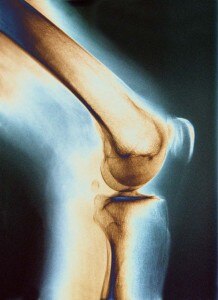Q: What are joints?
A: Joints are the areas where your bones meet. They allow your body to move. Without joints, you wouldn’t be able to walk, sit or raise your arms. At the ends of your bones are little “caps” of cartilage, a tough, smooth tissue that provides cushioning and allows movement. There is also a pool of slippery fluid, called synovial fluid, which prevents friction. Together with tendons and ligaments, these make up your joints.
Q: What causes joint pain?
A: Joint pain, which can present itself as stiffness, discomfort, soreness or swelling, affects men and women of all ages. It’s not a “normal” part of aging, as many people believe. Joint pain can be caused by a number of factors such as overuse, strain, injury and medical conditions. With certain conditions, cartilage can be broken down over time, leaving bones to rub together and causing severe pain.
Q: What can be done to support joint health?
A: There are a number of nutrients that support joint health. The most popular joint health supplements include glucosamine, chondroitin and MSM. Glucosamine and chondroitin are both normally found in cartilage, but levels decrease with age. Chondroitin helps cartilage retain water. They can be taken in supplement form and have been found in several studies to help support joint health. MSM is a sulfur-containing compound, found in raw vegetables such as broccoli, red peppers and Brussels sprouts, that supports connective tissue health.
Q: Are there foods I can eat to support my joints?
A: A healthy diet rich in calcium, vitamin D, manganese, omega-3 essential fatty acids and antioxidants is especially good for bone and joint health. Foods containing these nutrients include: salmon, cod, flax seed, tofu, nuts, whole grains, dairy products, soy milk, dark green leafy vegetables and citrus fruits. The following foods are also a natural source of glucosamine: shrimp, lobster and crab shells, sports drinks and sweet almond oil.
Q: How much glucosamine/chondroitin is recommended to best maintain joint health?
A: According the National Center for Complementary and Alternative Medicine, 1,500 mg of glucosamine (taken in three 500 mg doses daily) and 1,200 mg of chondroitin sulfate are the amounts used in a successful study.

